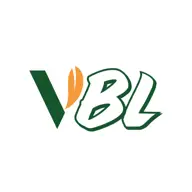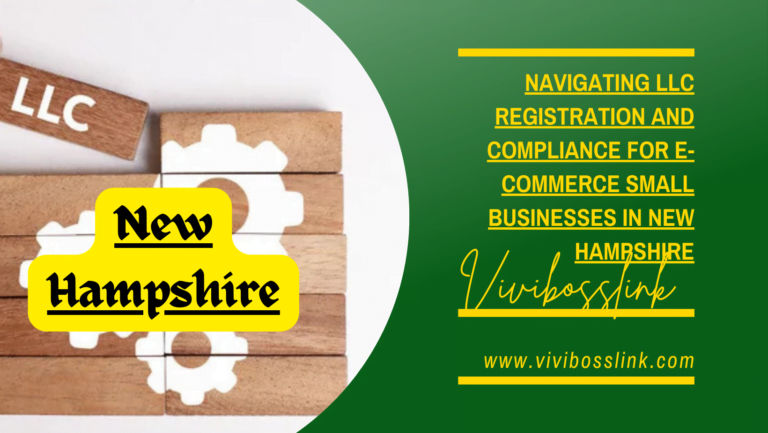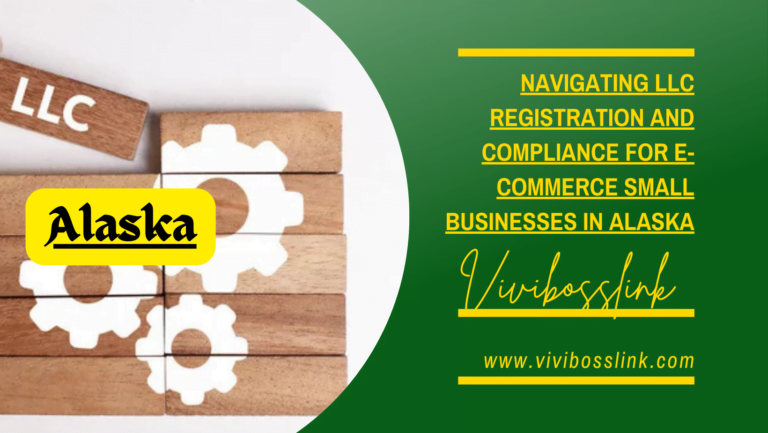
In this Article, we will be looking through a summary of all the 50 States in the United states and how ideal they are e-commerce start up Businesses to register an LLC.
It’s important to define what we mean by “ideal”. Particularly for e-commerce small business start ups, we are going to evaluate each state in terms of taxation rates, annual filings requirements, Cost and renewal requirement of Sales permit, Reseller certificate, DBA registration and LLC publishing requirement.
Our criteria for selecting the most ideal states for LLC registration particularly for e-commerce start ups is to simply prioritize States which have less State imposed taxes, little to no paperwork fillings and annual renewals. We also prioritize states that are more affordable in terms of not only the cost of LLC registration and the cost of obtaining certain permits that are relevant for e-commerce start ups.
Our selection criteria also prioritizes States which do not have LLC publishing requirements and States which gives option to to register LLCs anonymously.
It’s important to note that in our selection criteria for the most ideal states to register an e-commerce startup LLC, when we talk about “less taxes”, we are specifically evaluating States that have low “state” imposed taxes.
In the United States both States and the federal government levy taxes on Businesses. In fact, in this Article, we have written an overview of different taxes that an e-commerce business may be obligated to pay in the United States.
Nevertheless, in our selection criteria for the ideal State for LLC registration for e-commerce start ups, we particularly prioritize States that impose less State taxes on LLCs that are registered within the State.
It’s noteworthy that there are different Business entity structure types in the United States. (for example; sole proprietorship, partnership, LLCs and Corporations) and each business entity type have different tax rules and rates application depending on the State where it was registered and/or operates, there are a lot of nuances to taxation in the United States.
Therefore, we emphasize that this Article is specifically focused on reviewing the 50 States in the United States in respect to LLC registration for e-commerce small business start ups and recommending the most ideal State for e-commerce startups to register a Limited Liability Company (LLC) – and not any other business entity structure.
Moreover, tax rates and rules in the United States apply to US resident LLCs (that’s LLC whose members /Owner are US residents) differently from how it applies to non resident LLC (that is LLC’s whose members/Owners are not US residents).
Therefore our recommendation shall be in two parts, we shall recommend the most ideal states for (1) US resident LLC to register an ecommerce small business start up and (2) Non US resident LLC to register an ecommerce small business start up.
Regardless of our recommendations for the most ideal states, in this Article, we shall also provide you an overview of all 50 states and a brief summary of each State’s LLC legal compliancy requirement especially for e-commerce startups.
The overview of the 50 states which we shall provide further down this Article, will give you a bullet pointed review, to guide you informatively on making your own evaluations and deciding for yourself which state is more ideal to register an LLC for your own unique e-commerce start up.
Our recommendation for the most ideal states for e-commerce small business start ups to register an LLC
Having considered thoroughly our criteria for choosing thre most ideal State for registering an e-commerce state up LLC in the United States, If you want less taxes, little or no paperwork fillings and renewals, less cost in LLC registration and compliance, here is our recommendations for the most ideal States;
For US resident LLC (that’s LLC with members who are resident in the US), we recommend registering your LLC in the following top 3 most ideal states for e-commerce start ups;
- South Dakota
- Wyoming
- Alaska
For non resident LLC (that’s LLC with members who are NOT resident in the US), we recommend registering your LLC in the following top 3 most ideal states for e-commerce start ups;
- New mexico
- Ohio
- Arizona
You can easily register your LLC in any State with Bizee, Bizee is an online reputable service that helps businesses register their LLC, quickly, efficiently and affordably.
An overview of all 50 states and how ideal they are for LLC registration of e-commerce small business start ups
Remember in deciding on the best state for registering an LLC for e-commerce small business start up, we simply prioritized states that require less cost, paperwork and less taxes.
Below, you can review the 50 States and how ideal they are for e-commerce startup LLC registration, feel free to make your own pick of what state is best suited for your e-commerce small business start up.
Check out our summary of each of the 50 states in the United States and how they compare in terms of fees and legal compliancy requirements for maintaining an LLC in that State (especially for an e-commerce start up business).
Click on any State link below to the LLC legal compliance summary for that state.
- Alabama
- Alaska
- Arizona
- Arkansas
- California
- Colorado
- Connecticut
- Delaware
- Florida
- Georgia
- Hawaii
- Idaho
- Illinois
- Indiana
- Iowa
- Kansas
- Kentucky
- Louisiana
- Maine
- Maryland
- Massachusetts
- Michigan
- Minnesota
- Mississippi
- Missouri
- Montana
- Nebraska
- Nevada
- New Hampshire
- New Jersey
- New Mexico
- New York
- North Carolina
- North Dakota
- Ohio
- Oklahoma
- Oregon
- Pennsylvania
- Rhode Island
- South Carolina
- South Dakota
- Tennessee
- Texas
- Utah
- Vermont
- Virginia
- Washington
- Washington DC
- West Virginia
- Wisconsin
- Wyoming
Our criteria for selecting the ideal states for e-commerce small Business start ups to register their LLC
Let’s now proceed to list and explain the criteria for our selection.
- LLC Registration cost; we will look at the cost for registering an LLC in each state and prioritize the states with more affordable costs.
- LLC registration Publishing requirement; some states require LLCs to publish its formation in a local newspaper, for a period of time, this can incur additional costs in the formation of an LLC. We will indicate if a state has publishing requirements or not and prioritize States without publishing requirements.
- Has the Option to register as an Anonymous LLC; some states have the option for LLC to register as an anonymous LLC, this means that the LLC members names, address and details will not be published as public records with the State, Instead the LLC can appoint an organiser whose name will be on the public records.
The option for an LLC to register as an anonymous LLC is beneficial if an LLC owner wishes to keep their details off public records. This can be for a number of reasons, for example; if the Owner has a controversial personal profile and wants future investors to see the LLC for its own credibility in making the decision to invest in it and not be discouraged from investing in the LLC because of the controversial personal profile of the LLC Owners.
Registering an LLC as an anonymous LLC has its downsides, for example some banks and financial institutions do not accept opening Business bank accounts for anonymous LLC members whose names are not in the public records of the LLC.
More so, some banks and financial institutions may accept to open a Business bank account only if the applicant/signatory of the Business Account is the anonymous LLC Organizer whose names appear on the LLC public records.
We will indicate and piriotize States that gives the option for LLC to register as an anonymous LLC.
- DBA requirement; Some states require LLC’s to register a DBA (doing business as) if they operate business under a name that is different from the LLC’s registered name.
For example if you have an LLC that is registered as Jane Smith LLC but you have an e-commerce website with the domain “jannywool”. You do not have to register a DBA for “jannywool”, if “jannywool” is just your web address for your business content,
However, if you operate your business as jannywool; for example, your social media pages username is jannywool, your business is branded and marketed as Jannywool or your business communicates to customers as Jannywool. In the instance that your LLC operates under a different name than it’s register name, some states require that you register the name (i.e jannywool) as a DBA (doing business as).
A DBA in this instance is basically to let the public know that Janny Smith LLC is doing business as Jannywool.
Most states require that LLCs must register a DBA if they are operating under a name different from the LLC registered business name. Most states charge costs for registering a DBA and require renewal of the DBA licence after a certain period of time.
A DBA has several alternative names. Some states may refer to a DBA as a fictional name.
We will indicate states that have DBA requirements, the cost, if renewal is required and within which period.
We will prioritize States that do not have DBA requirements, have zero or low associated costs for registering DBAs, have no DBA renewal requirement or allow a long period of time before DBAs expire and need to be renewed.
- State income tax requirement; State income tax is imposed by the states usually on people who live and work in the Stares or non residents with State sourced income.
An LLC by default is a “pass through entity”, for the purpose of income tax. This means that State income tax obligation “passes through” from the company as an entity to the members of the LLC. You can learn more about different Business entities and how they are taxed in the United States in this Article.
By default (except the LLC elects to be taxed as a C-corp) LLCs are obligated to pay income tax on an individual level and not the LLC itself as an entity.
This means that if the members of the LLC live and work in a given state or if the LLC has State source income, the LLC will be required to pay any State income tax applicable in that state.
If the LLC is a non resident LLC, in other words if the LLC owners do not reside in the state, will the non resident LLC Owners still be required to pay income tax? If the LLC Owners do not reside in the state, will they still be required to pay State income tax if they have State source income.
It’s important to define what state source income is; State source income is the portion of income attributed to services performed in a State by Business Owners or thier dependent agent.
If income is attributed to service done by an independent agent of the LLC in a given State, that income is not a state source income. The income is only a state source income if the service was carried out by a dependent agent of the LLC.
So who is a dependent agent? a dependent agent is an agent that is directly answerable to the LLC. for example; a direct employee of the LLC.
Who is an independent agent? an independent agent is an agent that is not directly answerable to the LLC, for example an independent contractor or independent Business partner.
For instance, if a dropshipper who lives in Canada, registers an LLC in Arizona. The dropshipper promotes products online from his home office in Canada. The dropshipper has Arizona based customers and delivers products to the Arizona customers using a US dropshipping Supplier that is based in Arizona. The dropshipping supplier ships products from its warehouse based in Arizona to customers who are based in Arizona.
In this instance will the Dropshippers Arizona LLC be said to have Arizona State source income? No. This is because although the Dropshipper Arizona LLC has Arizona based customers, the LLC Owner ( aka Dropshipper) service was to promote products online which was from his home office in Canada (outside the State of Arizona).
The LLC fulfilled the delivery of the products using a Dropshipping Supplier based in Arizona, the important question is whether that Dropshipping Supplier is an independent agent or a dependent agent? The Dropshipping supplier is an independent agent because dropshipping suppliers typically are an independent business partner with its own internal business managements and clients and it’s not directly answerable or dependent on Dropshipper LLC.
In the given instance, the members of the LLC registered in Arizona, are non residents and they use an independent agent to fulfil product orders, the non resident Arizona LLC does not have state sourced income. Therefore the LLC is not obligated to pay State income tax.
It’s important to understand State income tax obligation as it relates differently to US resident LLCs who are required to pay State income tax Vs non resident LLCs who are not required to pay State income tax if they do not have State source income.
When we select our recommended states for registering e-commerce start up for LLCs, particularly for US residents LLCs, we will give higher priority to States that do not levy individual State income tax.
Remember that LLCs by default are a “see through company” that are taxed on an individual level. That’s why we give priority to states that do not have Individual state income tax.
An LLC can elect to be taxed on a corporate level by filling the l necessary forms to the IRS to choose to be taxed as a C- Corporation. Therefor, we will also give priority to States with no Corporate income tax.
It’s important to note that when we select our recommended states for registering e-commerce start up for LLCs, particularly for non resident LLCs, we do not place much priority on individual state income tax because a non resident LLC is not required to pay individual State income tax if they do not have State sourced income.
- State Franchise tax requirement; Some states levies an annual Franchise tax to LLC registered in the State. For example California levies an annual Franchise tax of $800 on LLCs and Delaware has an annual Franchise Tax of $300
In the selection of our recommended states for registering an LLC for e-commerce start ups, we will prioritize States that do not have any Franchise tax.
- Annual returns filing requirement; There are States which mandates LLCs to file annual returns. We will indicate states which require LLCs to file annual return and the cost of filing annual returns if you register your LLC in these States.
In the selection of our recommended states for registering an LLC for e-commerce start ups, we will prioritize States that do not require LLCs to file annual returns.
- Sales tax requirement; Most states charge sales tax but there are a few states that do not change sales tax. each state has its own rules as regards which businesses are mandated to pay sales tax. Generally Businesses that have met a physical presence nexus or economic nexus in a state are required to charge sales tax on products sold to customers in that State and remit the sales tax to the state government.
Physical presence nexus can be met when a business has an address in a state or if a Business has warehouse their products state.
For example, if a Business has registered an LLC in a State, the business would have an address in that State, (usually as part of the requirement for formation of the LLC in the State) and having met the physical presence nexus, the business will be required to charge sales tax on products sold to customers in that State and remit sales taxes to the State Government.
A Business may also be required to charge and remit taxes if it has met the economic nexus of a state (even if the business does not have any physical address or inventory in that state). In most states the economic nexus is determined by reaching a sales threshold of 200 transactions or $100,000 in sales in the previous or current calendar year (in that particular state).
It’s important to note that sales tax rates can be imposed by both the State government and local government. However, sales tax payment and report filing is managed at the state level. A few states do not charge any sales tax rates.
More so, If you register your e-commerce start up LLC in a state that charges sales tax like Carlifornia, if you sell to customers in a State that does not charge any sales tax like Delaware. You won’t be paying sales tax to Delaware. If you have customers in a State like Maryland that also charges sales tax but have not met the physical presence and economic sales tax nexus in Maryland, you also won’t be required to charge sales tax in Maryland.
You will need to charge sales tax in States where you have met the physical presence nexus (i.e registered your LLC) or have met the economic sales tax nexus.
It takes a bit of work to be able to calculate the actual sales tax to charge customers and to pay and file the sales tax to the State government.
There are a lot of e-commerce tools that can help Businesses automate the process of calculating sales taxes for each product sold in a state where the sales tax nexus is met, charging the accurate sales tax, paying and filing the sales tax collected to the applicable State government.
However, most of these sales tax calculation and filling tools require a monthly paid subscription. We understand the need for e-commerce small businesses to save cost and still run effectively at their start up stages, that is why, we’ve written this other Article, to guide small business e-commerce startups on how to semi-automate the calculation and remittance of their sales taxes at little to no cost.
Please note that, in the selection of our recommended states for registering an LLC for e-commerce start ups, we will prioritize States that do not have any sales tax requirements.
Nevertheless, we will give more priority to States that do not have State income tax compared to States that do not have sales tax. This is because a Business may not pay sales tax on their profit but the Business serves as a tax collector on behalf of the State for collecting sales tax from customers and remitting to the State.
- Sales tax permit; when an ecommerce Business has met the sales tax nexus in a state, for example if the e-commerce business is a registered LLC in State and this has physical presence in that State or the e-commerce Business has met the economic sales tax nexus in a state, the Business will be required to obtain a Sales tax permit in the State to charge and remit sales taxes and remit to the State government.
In the selection of our recommended states for registering an LLC for e-commerce start ups, we prioritise states which do not charge any fees to obtain a sales tax permit and which do not require any periodical renewal to maintain the Sales tax permit.
- Reseller certificate requirement; if you want to purchase products from a Supplier and the supplier has reached the sales tax nexus for delivering products in the state where you want the products to be delivered (most suppliers have reached the nexus’s requirement because they would typically work with lots of resellers)
The Supplier would charge you sales taxes unless you present a Reseller Certificate (obtained from the State where the product is to be delivered) that shows that you intend to resell the products. If you can present the applicable Reseller certificate, the Supplier won’t charge you Sales tax.
For example, if you want to order products from your Supplier for delivery to a location (i.e a warehouse) in the State were you have registered your LLC (for example, let’s assume you registered your LLC in Arizona), and you do not want the Supplier to charge you Arizona sales tax on that purchase, you will need to obtain an Arizona Reseller Certificate and present the Arizona Reseller Certificate to your supplier, who will then deliver the products to your Arizona warehouse without charging you Arizona sales tax in the product purchase.
If you are dropshipping, the sales tax becomes a bit tricky because you don’t have a single location where you want to receive a bulk product order from your supplier. Instead you want your supplier to deliver products directly to several customers’ locations.
Would you need to obtain a Reseller certificate in all the States where your Customers are located, if you do not want to be charged sales taxes by your dropshipping supplier for product delivery to those various states?
No, this is where the Streamlined Sales Tax (SST form) as a Reseller Certificate and Uniform Sales & Use Tax Resale Certificate (MTC form) comes to use.
There are 25 States that participate in the Streamlined Sales Tax (SST form) and 36 States that participate in the Uniform Sales & Use Tax Resale Certificate (MTC form) comes to use.
The Streamlined Sales Tax (SST form) and Streamlined Sales Tax (SST form) are basically forms which you can fill out as an alternative Resale certificate to indicate that you are a reseller in multiple states. so instead of filling several forms for each state you fill one form for multiple states.
You just have to fill the form properly and present it to your Supplier to make sales tax free purchases that are delivered to any of the states where you have indicated to be a reseller.
It’s important to note, that while filling your either the MTC form or SST form, there is a field where you have to fill out your Seller ID. Most states accept out of State seller ID.
This means that if you are already registered as a seller in a State (i.e registered for Sales tax permit and therefor have Sale tax permit ID in that State). In your MTC and SST form you can fill out your home state Seller ID, under most of the states fields.
However, there are 10 states that do not accept out of state seller ID and will require that you register and get their state-issued seller ID if you want to indicate the State as a resale state on your SST or MCT form.
Additionally note that a resale certificate can be used as a blanket certificate. This means that the resale certificate is kept on file by the Supplier to cover multiple purchase transactions between a specific Supplier and Reseller (and not just a single purchase transaction).
Some states require a periodic renewal of the resale certificates while some states do not require any renewals.
For each of the 50 states, we will indicate links to the State specific resale certificate forms and we will also indicate if the states accept the use of MTC or STS forms for resellers who want to indicate multiple resale states using a uniform form. We will also indicate the states that do not accept out of state seller IDs in filling out the MTC or STS resale certificate forms.
More so, we will indicate states that do not require a renewal of their Resale certificate.
In the selection of our recommended states for registering an LLC for e-commerce start ups, we prioritize states which do not have a require periodical renewal of the resale certificate.







